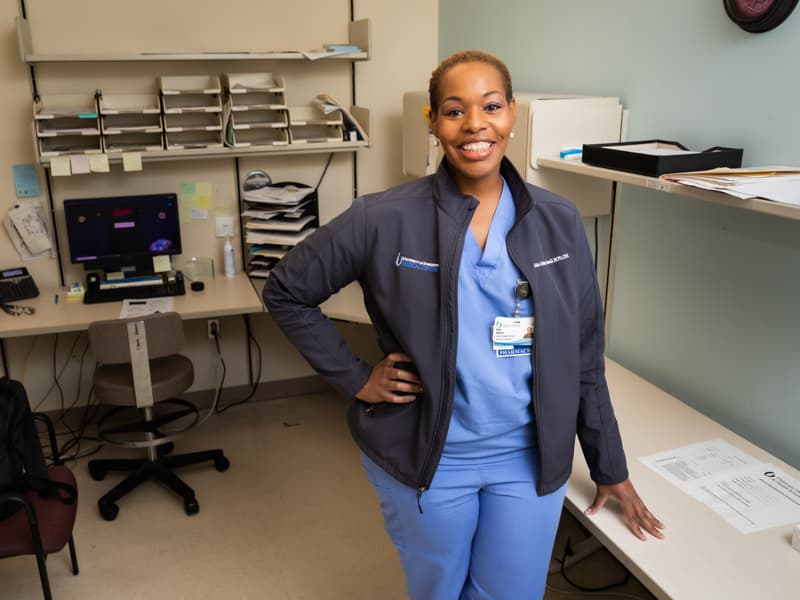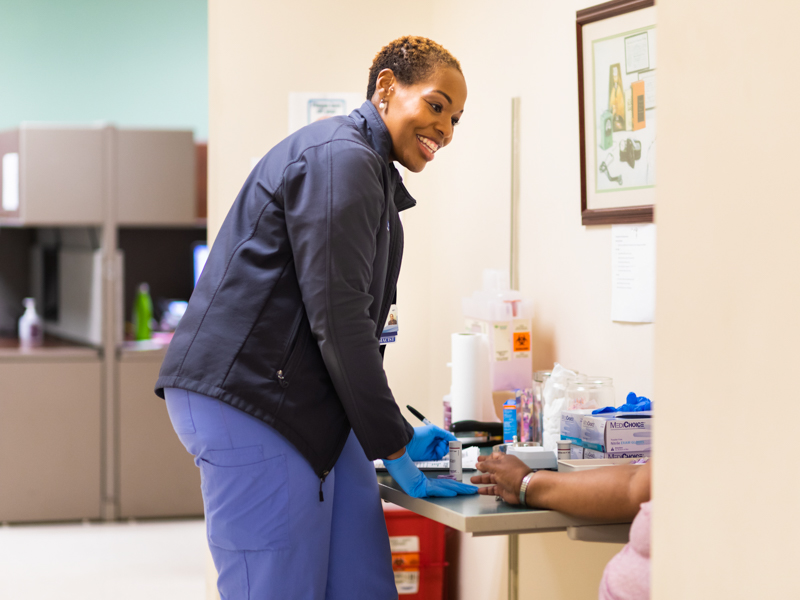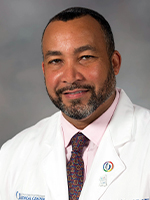#UMMCGrad2020: New SOPH grad to tackle social health disparities

In her work as a clinical pharmacist at the University of Mississippi Medical Center, Erika Webster cares deeply about her patients’ needs, far beyond the medications that keep their chronic diseases in check.
She sees their other challenges: Poverty. Transportation issues. Access to healthy food – or any food, for that matter. A healthy and safe place to live.
Webster, who this month receives her master of science in population health management from the John D. Bower School of Population Health, is poised to do even more to help her patients live their healthiest lives.
“I want to incorporate my clinical background to identify high-risk patients and their barriers to care, and to develop solutions,” said Webster, a 2006 University of Mississippi School of Pharmacy graduate. “When patients have access to healthy foods and reliable transportation, they are more likely to have better health outcomes.”
Webster works in the pharmacist-run anticoagulation clinic at the Jackson Medical Mall. There, she helps patients manage Warfarin, a blood thinner used to prevent harmful blood clots from forming or growing bigger. Beneficial blood clots can prevent or stop unwanted bleeding, but harmful clots can put patients at risk of heart attack or stroke.

Warfarin “is a high-risk drug, and management is very complex,” Webster said. “Acute drug interactions and changes in chronic diseases can take place, and that can cause harm to patients.
“We’ve seen patients present with an acute illness like a congestive heart failure exacerbation, and that makes their anticoagulants out of range and can increase their risk of bleeding.”
That’s where a closer look at their health disparities comes in. “If we can incorporate ways to address food insecurity and lower their sodium intake, as well as educate them on ways to manage their disease, that will help prevent readmissions,” Webster said.
Webster takes the time to provide education to her patients on lifestyle modifications, such as improving their eating habits, that can help them better manage their health challenges. “If we see medication issues, we can reach out to their provider and make recommendations,” she said.
To better care for her patients, Webster became a board-certified pharmacotherapy specialist in 2008 and a certified diabetes educator in 2009.

“Dr. Webster’s passion and commitment to addressing our diabetes epidemic by implementing diabetes prevention programs in primary care settings makes her part of a new generation of health care professionals determined to work to make the needed changes to improve our health care system and the health of our people,” said one of her professors, Dr. Leandro Mena.
Mena is chair and professor in the SOPH’s Department of Population Health Science and professor of medicine in the School of Medicine. “We are very excited and happy to have Dr. Webster graduate in our second class of our master of science in population health management,” he said.
Webster said she learned about the SOPH’s degree programs by reading internal UMMC publications such as the weekly eCV newsletter disseminated to every UMMC email address. “There was an article about the school’s initiative with the Diabetes Moonshot, a program geared toward addressing patients with pre-diabetes,” she said.
“I was fortunate enough to reach out to the dean of SOPH and tell her that is an area I am interested in, and she allowed me the opportunity to serve on the Diabetes Moonshot Committee,” Webster said. “I learned about population health and why it’s so needed in Mississippi.
“Mississippi ranks among the highest in chronic diseases, and the SOPH is moving forward with initiatives to help improve the health of Mississippians. I wanted to be a part of that process.”
Webster is originally from Pocahontas, a small community off U.S. 49 in north Hinds County. She received her bachelor of science in pharmaceutical sciences in 2004 from the University of Mississippi before continuing her studies to receive her Pharm.D.
“I’m a very social person,” said Webster, a member of the choir at Cade Chapel Missionary Baptist Church in Jackson. “COVID-19 has put a hindrance on my hobbies – I love to travel - but I enjoy spending time with my family and friends.”
She worked full time while earning her master’s, much of it online, but some of the program including weekend instruction at the SOPH.
“I’m looking forward to seeing what the future holds by utilizing this degree,” she said. “What COVID-19 has really uncovered is health disparities that a lot of us knew were there. I hope to use population health initiatives to decrease those disparities, and to increase access to quality health care.”


